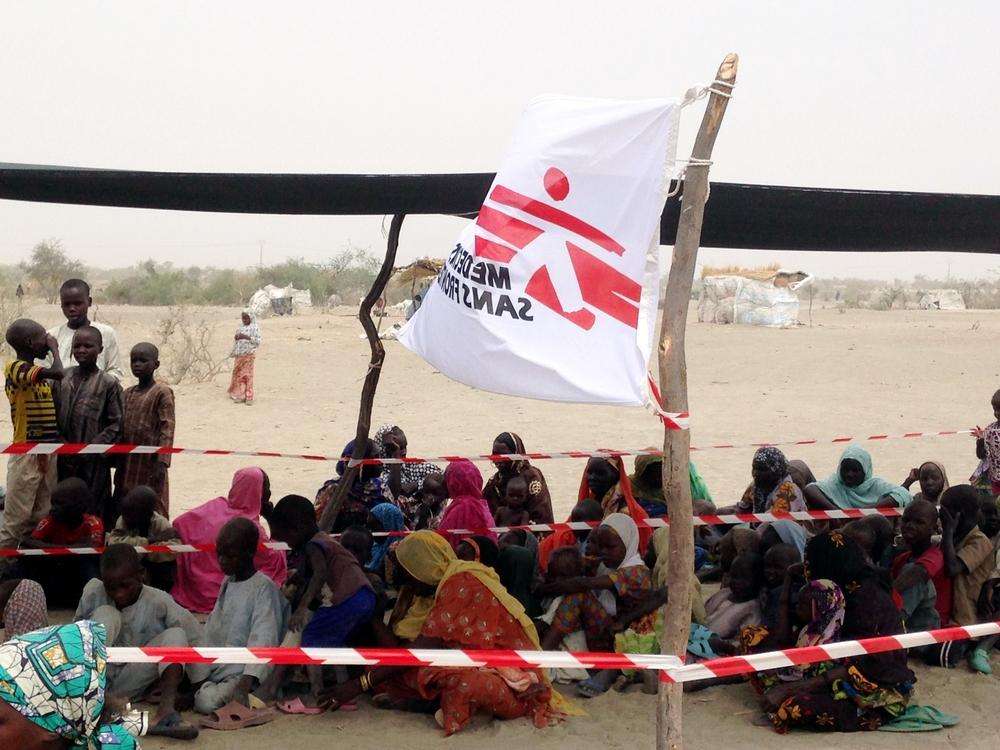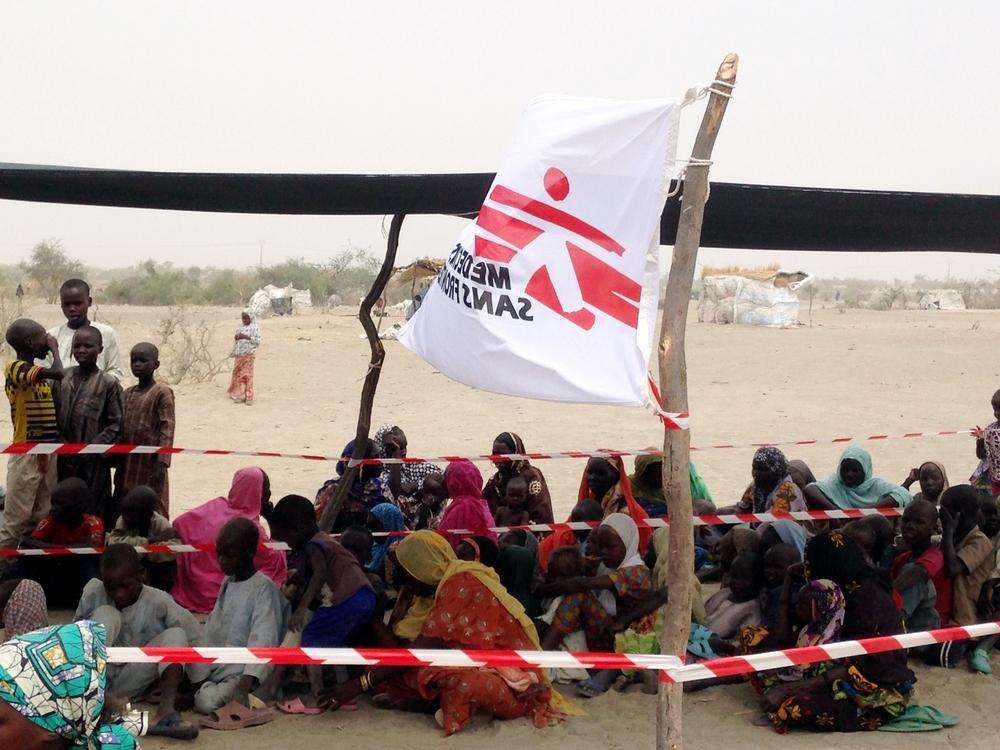The already precarious situation of the population in southern Niger's Diffa region has recently become further aggravated by the escalation of the ongoing armed conflict near the border with Nigeria. This area is facing new waves of displaced people and refugees fleeing violence raging around Lake Chad, which has intensified since last February, when the conflict arrived in Niger. The living conditions of the displaced population—with little access to health care and safe water—are dire.
The vast majority of people seeking refuge in Diffa are settled in spontaneous, dispersed settings, or with local host families. However, solidarity and coping mechanisms are beginning to falter. Furthermore, around 17,000 people are currently living in two displacement camps that were spontaneously established in Bosso and Nguigmi districts after the evacuation of Lake Chad in late April. There are very few humanitarian actors providing aid in the area.
“Many of the people we are assisting have had traumatic experiences [that] have forced them to leave their homes,” explains Elmounzer Ag Jiddou, Doctors Without Borders/Médecins Sans Frontières (MSF) head of mission in Niger. “However, in Diffa they are going through a very difficult situation, as their basic needs are not covered. Moreover, they are also afraid of being attacked again.”
The Rainy Season and the Hunger Gap are Just Around the Corner
In the coming weeks, Diffa will face its annual hunger gap, when the number of children affected by severe acute malnutrition increases. The situation this year is especially critical as the violence is affecting normal trade in the area and many fields have not been planted.
Furthermore, the imminent arrival of the rainy season will bring with it a growing number of malaria cases which, with the increased malnutrition, could make for a particularly lethal combination, especially for young children. What’s more, the approaching rainy season could exacerbate the already poor sanitation conditions in the camps, where cholera is endemic.
“The rains also make access more difficult, further hindering the arrival of humanitarian aid,” says Luis Incinas, MSF program manager in Niger. “Right now, there are very few organizations in the area despite the great needs, and we are very concerned that the situation may further deteriorate in the coming months. In response, we have started to diversify activities, building latrines and supplying water as these aspects have become priorities and are still not getting the level of response they should be.”
MSF Increases Operations in Diffa to Address the Growing Needs of the Population
To improve health care for both the local and displaced populations in Diffa, MSF works alongside the Nigerien Ministry of Health in the main maternal and pediatric health center in the city, and in six health centers in the districts of Diffa, Nguigmi, and Bosso. To prevent an increase in malaria cases in the coming months, MSF will also start distributing 25,000 insecticide-treated mosquito nets in the region.
The organization is also working with mobile clinics in both camps in Nguigmi and Bosso, where its teams have provided more than 2,500 with medical care during the month of June. In the Yebi camp in Bosso, MSF is also carrying out water and sanitation activities to guarantee that each person has access to 20 liters per day, the minimum quantity recommended in an emergency situation.
Read More: Displacement and Fear Continue in Lake Chad Region
MSF first started working in Diffa in December 2014 in response to a cholera outbreak, treating a total of 271 patients. In January 2015, the organization started supporting the health centers of Ngarwa and Gueskerou (in Diffa District) and Nguigmi (in Nguigmi District). After the Boko Haram attack in Diffa on February 6, MSF scaled up its operations to support the main maternal and pediatric health center in Diffa town. At the beginning of May, MSF again increased its activities to assist people displaced from Lake Chad who were living in harsh conditions in displaced camps. Finally, since the beginning of July 2015, MSF has been supporting three additional health centers in Baroua, Toumour (in Bosso district), and Ngalewa (in Nguigmi district).
Since the beginning of its intervention in Diffa, MSF has carried out more than 15,000 medical consultations—more than 12,000 for children under five years old and more than 450 for admitted to the maternal and pediatric health center.
There are currently 122 MSF staff members working in Niger; 11 international and 111 national staff.





